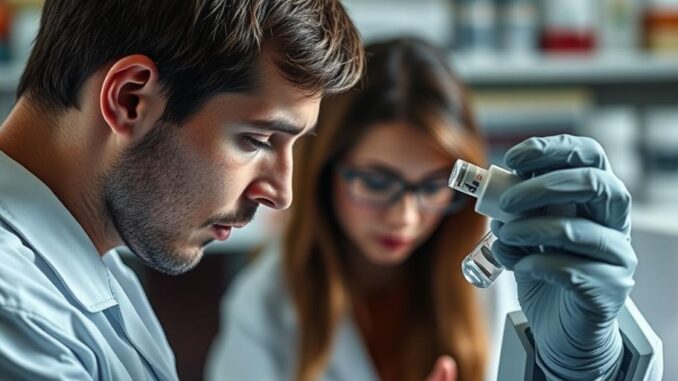
Summary
New research suggests that GLP-1 drugs like Ozempic, typically used for diabetes and weight loss, may significantly reduce opioid overdoses and alcohol intoxication. Studies show a 40% lower chance of opioid overdose and a 50% lower risk of alcohol intoxication among users of these drugs. While further research is needed, this discovery offers a promising new avenue for addiction treatment.
** Main Story**
The opioid crisis continues to grip our nation. It’s a devastating problem, and the numbers are frankly, alarming. In 2023, we lost roughly 107,500 people to drug overdoses, and opioids were a major factor. We’ve got medications designed to help with opioid use disorder (OUD), but getting access and staying consistent with treatment are huge hurdles. That said, something new is emerging, offering a potential breakthrough: GLP-1 drugs, like Ozempic. You probably know them for diabetes and weight loss, but they might also be a key to reducing opioid overdoses and alcohol intoxication. Sounds promising, doesn’t it?
Encouraging Early Results
Recent studies are digging into how GLP-1 drugs could help with addiction, and honestly, the initial results are exciting. For instance, one study published in Addiction showed that people with OUD who were on GLP-1 drugs had a whopping 40% lower chance of opioid overdose. And get this, those with alcohol use disorder (AUD) saw a 50% drop in alcohol intoxication! These are preliminary findings, I get that, but they suggest GLP-1 drugs could really shake things up in how we tackle addiction.
How Could This Actually Work?
So, how do these drugs actually combat addiction? Well, GLP-1 drugs tinker with the mesolimbic system. That’s the part of your brain that regulates appetite and those satisfying feelings after a good meal. Now, here’s the interesting part: this same area is heavily involved in addictive behaviors. Researchers think that GLP-1 drugs might mess with the reward pathways tied to substance use, potentially cutting down the cravings for opioids and alcohol. Though, this seemed to primarily affect individuals with severe cases of opioid and alcohol misuse.
I remember reading a similar study a few years ago, albeit on a different type of drug. The underlying principle, the way it interacted with the brain’s reward system, was remarkably alike. It’s fascinating how different approaches can sometimes converge on the same biological mechanisms.
But We Need More Data
While these early signs are encouraging, experts stress that we need much more research. The gold standard is double-blind, placebo-controlled randomized trials, and those are crucial to confirm that GLP-1 drugs are both effective and safe for treating addiction. Plus, we need to figure out what the long-term effects are and if there any potential side effects. It’s important to be thorough, you know?
A Glimmer of Hope?
The idea that GLP-1 drugs could help with addiction is a huge deal. It’s a field that’s desperately looking for new answers. This opens up some really interesting doors for different treatment options, especially for people who haven’t responded well to the usual methods. We still have a long way to go, sure, but right now, this is a reason for hope for those who are struggling and their families. It might sound naive, but i’m always hoping for some positive news when reading research papers, the world could use some good news.
The Data’s Telling a Story
Researchers dove into electronic health records from a massive database, and what they found adds more weight to the idea that GLP-1 drugs can lower addiction risks. Now, I know that this kind of data isn’t the same as randomized clinical trials, but it does reinforce the need to keep looking into how these drugs could be used therapeutically. It’s also worth noting that the weight loss effects of these drugs might also play a role in boosting the overall health of those with addiction.
Beyond the Obvious
It’s intriguing to consider, the way GLP-1 drugs work might have implications beyond just opioids and alcohol. The same mechanisms that affect those addictions could potentially extend to other substance use disorders, even behavioral addictions. It’s a possibility that deserves a closer look, because it could open the door to using these drugs in a much wider range of addiction treatments. Maybe gambling, or even some kinds of tech addiction.
Final Thoughts
Finding a potential link between GLP-1 drugs and lower addiction risks is a big step forward in the fight against addiction. As researchers keep digging into this promising area, we could be on the edge of a new chapter in addiction treatment, one that brings much-needed hope to individuals and the communities struggling with the devastating effects of substance use disorders. This development, while still in its early stages, offers a beacon of hope in the ongoing quest to combat the opioid crisis and other addiction-related challenges. As research progresses and more data becomes available, we can look forward to a more comprehensive understanding of the role GLP-1 drugs can play in reshaping the landscape of addiction treatment.


Be the first to comment